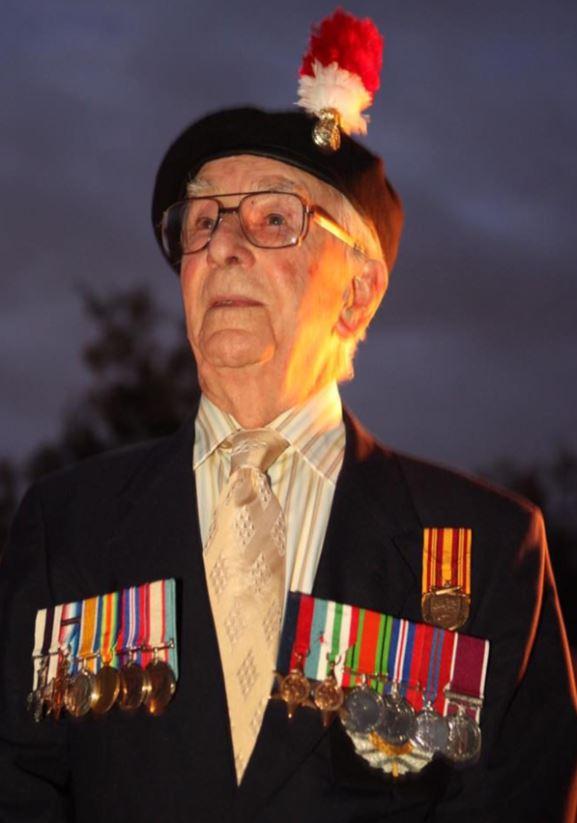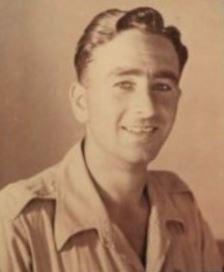Remembering Dunkirk

Dunkirk veteran Peter Bailey: “The beach I got on was absolutely chock-a-block and parts of it were just red."
“It was the first time I saw a dead body, a body that’s been mangled beyond recognition, and there were hundreds of them, all on this beach, and the beach was absolutely crowded.”
It’s been 77 years since the Battle of Dunkirk, but for 97-year-old Peter Bailey the memories of May 1940 are as vivid as ever. He was just 20 years old when he found himself trapped on the beach in northern France as Hitler’s troops closed in during the Second World War.
“My battalion was practically destroyed,” Bailey said from his home in Perth. “There were only a few survivors left, and when we arrived at Dunkirk, we had one truck, which was just about on its last legs.
“There was no food, no water, no nothing, and you couldn’t get any sleep because Jerry was shelling all the time, and there were aeroplanes bombing the beach and killing people left, right and centre.”
Bailey was one of more than 335,000 Allied troops evacuated from the beaches and harbour of Dunkirk. The evacuation became famous because of the bravery of hundreds of civilians who sailed small boats across the English Channel to help save the trapped soldiers. It is now the subject of Christopher Nolan’s acclaimed film Dunkirk.
“In the first part of that film there are soldiers all lined up in columns facing the sea on pure white sand, but that part, I could not understand,” Bailey said after seeing the film with a friend.
“The beach I got on was absolutely chock-a-block and parts of it were just red. It was shocking, absolutely shocking.
“I managed to get on to a pier, but just as I got to one boat, the sailor there said, ‘Sorry, we’re full,’ and the boat pulled away. That boat got so far out and the Germans bombed it, and sank it, so all the people on board never survived.”
Bailey spent two, long, harrowing days on the beach before he was rescued, but considers himself one of the lucky ones. He is one of only a handful of Dunkirk veterans still alive today.
“There were hundreds trying to get on this boat, but I managed to get on it somehow,” Bailey said.
“I don’t even know what kind of boat it was. And this has got me trembling, because I don’t remember.
“I don’t remember a thing until somebody woke me up and said, ‘Come on we’re here.’ And I said, ‘Where’s here?’ He said, ‘England.’ I said: ‘What beautiful words to hear.’”
Bailey was born in India in 1920 to British parents, but moved to Western Australia in 1922 after his father saw a newspaper advert calling for farmers.
“We did fairly well, but when the depression came in 1929, we walked off the farm and my mother wrote back to her parents for the fare back to England,” Bailey said. “Eventually after a month, when the fare arrived, she booked a passage on a liner, but my father refused to leave.”
Bailey and his mother sailed for England in 1930 and it was in England that Bailey joined the Royal Northumberland Fusiliers as a 14 year old in September 1934.
“My mother and grandmother marched me down and put me into the boys’ army because my grandfather had been a colonel in the regiment,” Bailey said. “When I got there I didn’t like it one little bit, but I had no option. In those days, when you got to the age of about 14, you had to leave school and look for work. I managed to pass an exam and I was going to try to go to university, but my mother and my grandmother had other ideas and put me in the army instead.”
When the Second World War broke out in 1939, he found himself setting up positions along the France-Belgium border. “But it was just useless,” he said. “We just got pushed out. And it wasn’t fun either. There was no fun in it.”
After the evacuation at Dunkirk, Bailey went on to serve in Tunisia in North Africa, Italy, and Greece. He spent 27 years in the military and was reunited with his father while serving in Germany after the war. It was his father who suggested Bailey move back to Australia in 1962.
“I was thinking of going to Canada after I retired from the army, but he said, ‘What’s wrong with Australia?’ So my wife and two girls discussed it that night, and I said, ‘What do you reckon?’ And there you have it. So, I said, ‘Australia here we come.’ And I’m glad I did.”
Bailey now lives in Perth, and has six grandchildren and 14 great-grandchildren. He has never returned to the beach at Dunkirk, but the memories remain.
“Bad memories,” Bailey said. “Memories I really ought to forget. My friend said ‘let’s go and see Dunkirk,’ but it brought a lot of bad memories back that I wanted to forget because it was so horrendous, so depressing.
“I think of it every now and again, of all those poor soldiers, who got blown to bits on the beach, who were as young as me. It was terrible, absolutely terrible. But good ol’ Churchill, he saved more than 300,000 of them. And they should give the boat people a medal, because they were the real heroes of the day.”

Peter Bailey during the war: “There were hundreds trying to get on this boat, but I managed to get on it somehow.”